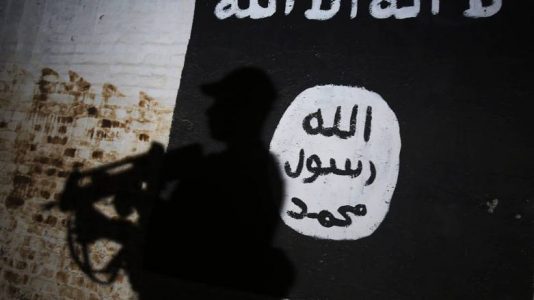
Islamic State still threat to the Kurdistan Region and Iraq and the whole world
A top official of the Kurdistan Region’s Peshmerga forces warned that the Islamic State remains an immediate threat to domestic and international security, adding that the group had killed, injured, or kidnapped more than one thousand people in Iraq over the past year alone.
“ISIS is still standing and posing a threat to the Kurdistan Region, Iraq, and the whole world,” Jabar Yawar, Secretary General of the Ministry of Peshmerga, told reporters in Erbil on Saturday.
Yawar’s statement comes after the Iraqi Parliament, in response to the US killing of top Iranian general Qasim Soleimani, voted on a resolution to expel all “foreign” forces from Iraqi territory. Notably, the only parties participating in the session were from camps opposed to the American presence in the country.
The vote was not attended by Kurdish lawmakers, who have said that the US-led Coalition is crucial in the continued fight against the Islamic State, nor most Sunni representatives.
Yawar continued, “In 2018, according to a survey we conducted, ISIS carried out 456 terrorist operations in which 1,742 people were killed, wounded, or kidnapped.”
According to these numbers, he explained, the extremist organization has more than doubled the casualties caused by its operations in 2019, adding up to a total of 1,058.
Officials from Kurdistan have long called for a joint security plan between Peshmerga and Iraqi forces to fill the multiple security gaps referenced by Yawar in areas disputed by Baghdad and Erbil.
Although Iraq had declared a “final victory” against the terrorist Islamic State in December 2017, the organization’s fighters continue to carry out regular attacks. They include bombings, assassinations, and kidnappings in previously liberated areas, particularly in remote villages and regions, where security forces have difficulty monitoring the movements of the group’s activity.
In late December, General Sirwan Barzani, the Peshmerga commander in charge of the Gwer-Makhmour unit, told the media, “ISIS has the freedom of movement in the belt-shaped territories along the edges of [the] Kurdistan Region borders between the Peshmerga forces and Iraqi security forces.”
Barzani also expressed his concern that recent attacks might be “just a start,” warning that they could “get worse in the new year if they continue to move freely and regain their strength.”
“The terrorist group has changed its strategies as they don’t have the capacity to engage in a traditional fight,” added the general, “but they are using guerrilla warfare tactics, as most of their militants are hiding in the mountains areas.”
Source: Kurdistan 24





